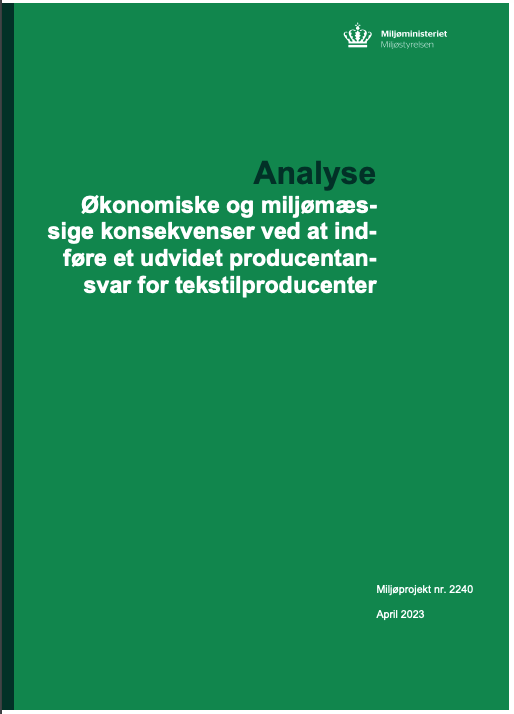Chemycal has been acquired by 3E
Learn MoreChemycal has been acquired by 3E
Learn MoreDiscover how Chemycal PRO helps you boosting your regulatory monitoring:

According to a new report by Deloitte, introducing extended producer responsibility (EPR) for textiles in Denmark could have significant economic and environmental benefits. The report examines the value of textile flows in Denmark and maps out the potential consequences of implementing EPR for the clothing and textiles industry.
EPR is an initiative that holds companies responsible for managing the waste from the products they sell. By introducing EPR for textiles, companies will have a financial incentive to extend the life of clothes, minimize waste, and make better use of materials. This can be achieved by producing higher quality clothing, developing resale solutions, or designing clothes that are more easily recyclable.
The report estimates that implementing EPR for textiles in Denmark could result in a reduction in textile consumption of approximately 1,660 tons. By increasing recycling and reuse of textiles, the need for new textiles will decrease, resulting in a reduced environmental footprint globally, including a reduction in water, chemical, and energy consumption during the production of new textiles.
Moreover, with EPR, the costs of managing textile waste will be borne by companies, leading to a reduction in citizens' waste fees by approximately 165 million DKK. The report also estimates that the socio-economic cost of implementing EPR for textiles in Denmark is around 159 million DKK. This cost is mainly due to a fall in sales and increased expenses for companies and the state for the administration of a producer responsibility scheme.
It is worth noting that Denmark already has EPR for electronics, batteries, cars, beverage bottles and cans (through a deposit system), filters for tobacco products, and will have it for packaging from 2025.
The consumption of clothing and textiles has increased rapidly over the past 20 years, leading to a significant strain on the environment during production, use, and waste management. The implementation of EPR for textiles in Denmark could be an essential tool in achieving a more efficient use of resources and reducing the environmental footprint of the clothing and textiles industry.
SOURCE: mst.dk
2013 © MyChemicalMonitoring. ALL Rights Reserved. About Us | Terms and Conditions